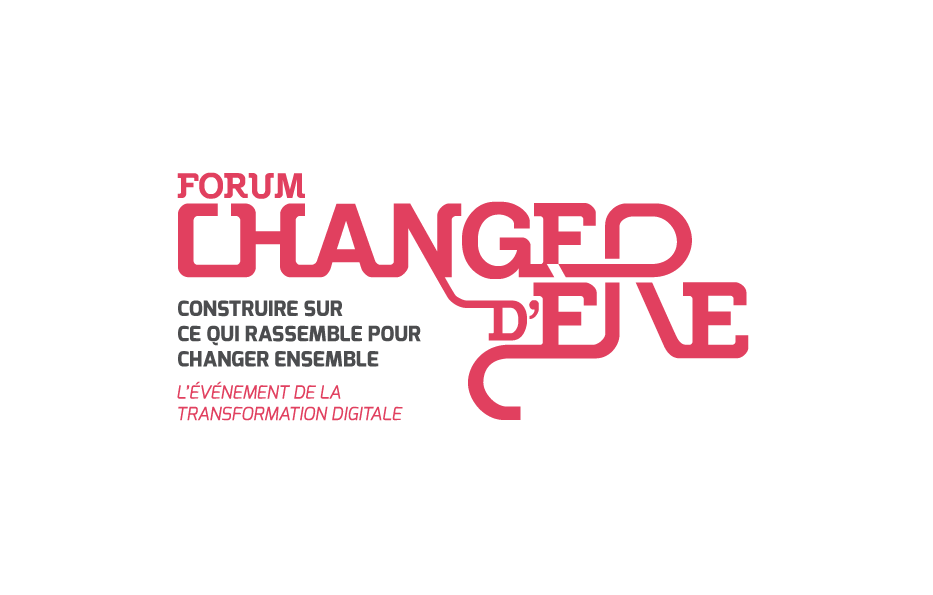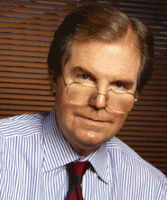For further information(1) : http://archives.obs-us.com/obs/english/books/nn/bdcont.htm
He also founded MIT’s pioneering Architecture Machine Group, a combination lab and think tank responsible for many radically new approaches to the human-computer interface.
In 1995, Nicholas Negroponte wrote « Being Digital« , a successful popular scientific book, everybody can read on the Net(1).
Nicholas Negroponte: Ideas come from differences. Most social circumstances and organizations minimize differences, consciously or subconsciously. The Internet is a place one can maximize them, especially if you have multilingual abilities. Point of view is worth a lot more than IQ. Where the Net fails us in this regard is serendipity. Face-to-face contact includes not only more channels and bandwidth, but human-to-human discourse and sharing a physical setting can include all sorts of ambiguities, uncertainties and misunderstandings – out of which new ideas often come.
NN: One could argue that current search techniques are so weak and the results often so silly, that they yield some form of innovation by being surprising (usually surprisingly dumb). In the longer term, search will happen by machines understanding content and understanding how to communicate with you. That eventuality is so far from what we have today, it is almost impossible to describe or imagine.
What we have today is a lot better than nothing… The challenge for all of us in general and the search engine designers in particular, is to change the relation between signal and noise. The web is a very noisy place, in the sense that old and defunct information is often not cleaned up. It is also hard to distinguish the work of a Nobel laureate from a grade school class.
Where innovation might occur, is on the occasion where the school children in fact had a terrific idea, which otherwise might go unnoticed.
NN: UMTS is a serious problem for Europe and could be the cause of losing an advantage currently held by being so far ahead of the US in wireless penetration and applications. UMTS is just not good enough. Period.
If it is implemented under the current specification (so-called « release 99″), Europe may not recover. At a minimum, it needs to be pure Internet Protocol and should have some of the elements which define so-called 4G. One reason this is possible is that GPRS is a fine, interim system.
Of course, there are other forces pulling on UMTS, trying to have it come sooner rather than later; notably the absurd auction process. People should keep in mind that those auctions were not a « free market » in any way. The result is economically not viable and very damaging to the telecommunications landscape.
NN : It has held true pretty well. Telephony has by and large moved into the air and TV has moved into the ground – and each is increasingly doing so.
What may be different today is that bits may seek their means of transport as a function of their nature and their audience’s. If you want to get one bit to everybody in a large remote region, using a satellite is the natural way. By contrast, if you want to get billions of bits from point A to point B in a densely populated area, then fiber is the right means.
Since we think of bits as bits these days – their being voice or video is meaningless – it makes more sense to look at the obvious means of transport, versus a rule.
NN: Excuse me for saying this, but it is a bit French to fuss over the words… We can craft any one of them to mean what we want, good or bad. At the root of all of them is geo-political reach. For historical and technological reasons, countries have emerged as bounded sets to which most people feel an allegiance, albeit not equally. Some people might feel themselves to be more Basque than French or Spanish. But in general, the Nation State has provided a socio-economic set with which people identify. Things beyond that set are considered international, global or universal.
Well, the nation state today is just the wrong size. It is too big to be local and too small to be global. As we go forward, people will feel a larger responsibility and be part of a large community. People will also identify will smaller communities. The stuff in between may fall away. In fact, within less than 50 years, we might be a planet with more than 2000 countries (compared to 200+ today).
NN: I stopped using the Macintoch, three years, four months and twenty days ago… It was a painful switch – very painful — but I had no choice and am glad I did it. No start-ups were using the MAC, the peripherals were too limited and the laptops (until recently) were like boat anchors. Nobody really likes Wintel, but you cannot beat its ubiquity. The MAC has no contemporary reason to exist, sadly. The only vestige is the graphic design community, who by force of good habit, feels locked into that machine.
Nicholas Negroponte, the « Digital Man » : » Ideas come from differences »
Comments 0
- Les Di@logues Strategiques on 2 mai 2010 inLes Di@logues Strategiques
Non classé
Ncholas Negroponte is a founder and the director of the Massachusetts Institute of Technology‘s (MIT) innovative Media Laboratory (Media Lab), research center focused on study and experimentation with future forms of human communication.
Véronique Anger : You are reputed to be a great « catalyst of ideas ». How do you use the Internet resources to help new ideas take form?
VA: Thanks to the Internet search operators, it is now easy to collect and convey information. Would you define the Internet as an innovation booster?
VA: In your book » Being Digital », you wrote : « (&) Accessibility, mobility and the capacity to provoke changes will the future very different from the present. » How do you imagine tomorrow’s companies ? What do you think about UMTS? Is it a good solution for Europe ?
VA: A few years ago, you said that ground traffics would become air traffics, and vice versa& Is the so-called « Negroponte switch » still a valid concept?
VA: Internationalization/globalization/universalization : According to you, do these three words significate the same thing?
VA: At the « Being Digital » time, you were a big supporter of Macintosh & Are you still so enthusiastic about Macintosh?



